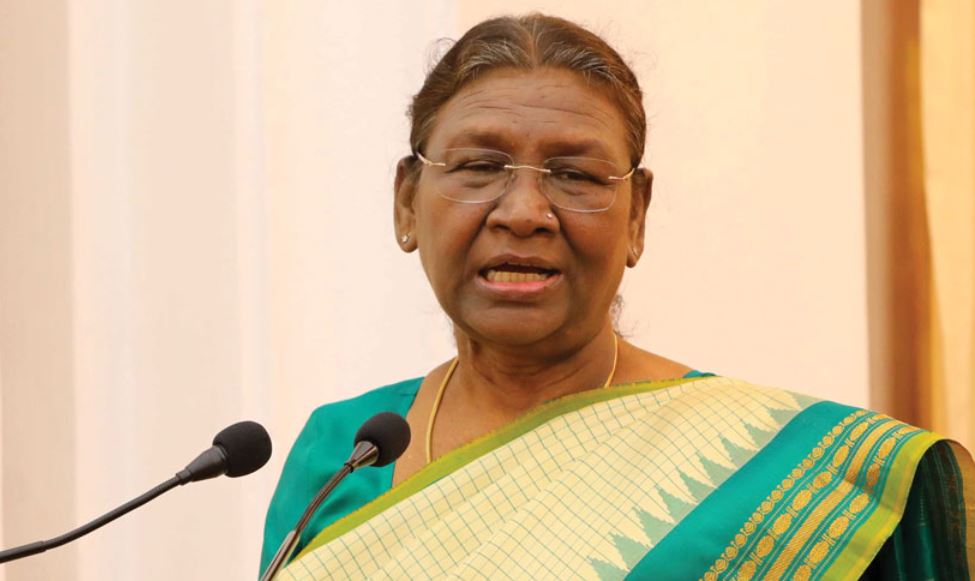Introduction: A Vision for Inclusive Development
On August 3, 2024, President Droupadi Murmu underscored the crucial role of inclusive development during the concluding session of the two-day ‘Conference of Governors’ held at Rashtrapati Bhavan, New Delhi. This conference brought together high-profile leaders including Vice-President Jagdeep Dhankhar, Prime Minister Narendra Modi, and Union Home Minister Amit Shah, who listened to Governors’ presentations and future-oriented suggestions. The focus of President Murmu’s speech was the need to enhance the participation of Scheduled Areas and Scheduled Tribes in national development efforts.
The Role of Governors in Inclusive Development
President Murmu articulated that Governors have a pivotal role in ensuring that the benefits of development reach all segments of society, especially the marginalized communities. She emphasized that the participation of Scheduled Areas and Scheduled Tribes in the nation’s development process is not merely beneficial but essential for fulfilling the country’s commitment to inclusive growth. The President urged Governors to prioritize the effective use of resources allocated for tribal welfare, advocating for an approach that guarantees that no eligible citizen is excluded from public welfare initiatives.
In her address, President Murmu stressed that the development of the nation hinges on the progressive and inclusive development of individual States. She advocated for States to draw lessons from each other’s successes and best practices, fostering a spirit of mutual learning and improvement. Additionally, the President highlighted the significance of women’s participation in achieving comprehensive social inclusion. She recommended bolstering women’s empowerment through support for women self-help groups and women-led start-ups, and advised Governors to actively engage with women entrepreneurs and institutions focused on women’s issues.
Strategic Recommendations and Technological Embrace
The second day of the conference featured presentations from six groups of Governors who shared their deliberations and proposed a future roadmap. These presentations were made before the President, Vice President Dhankhar, Prime Minister Modi, and Home Minister Shah. The discussions emphasized the need for enhanced communication between Governors and State governments, as articulated by Vice President Dhankhar. He urged Governors to seek information proactively and maintain ongoing dialogue with their respective State administrations to ensure effective governance.
Prime Minister Modi called for an innovative approach to governance within the Raj Bhavans, advocating for the integration of technology and digitization in their operations. He also proposed leveraging alumni networks from educational institutions to spearhead a campaign against drug abuse on educational campuses. In addition, Modi praised the natural farming model proposed by Gujarat’s Governor, Acharya Devvrat, encouraging other Governors to replicate this eco-friendly approach and eliminate chemicals from their Raj Bhavan premises. The Prime Minister envisioned Raj Bhavans as sources of motivation and exemplars of best practices.
Actionable Insights and Future Directions
Following the presentations, Home Minister Amit Shah reviewed the reports and committed to addressing all actionable points to enhance the effectiveness of Governors and Raj Bhavans. His emphasis on actionable outcomes underscores the conference’s focus on practical and implementable strategies for improving governance and ensuring that developmental initiatives are inclusive and impactful.
In conclusion, the conference underscored a collective commitment to advancing inclusive development across India. By embracing technological innovations, fostering collaboration between States, and emphasizing the empowerment of marginalized groups, the conference set a clear path for future governance strategies aimed at creating a more unified and equitable nation.
Summary
The ‘Conference of Governors’ highlighted President Murmu’s vision for inclusive development, emphasizing the crucial role of Governors in ensuring equitable progress across all communities. With strategic recommendations for technological integration and enhanced communication, the conference aimed to foster a more inclusive and effective governance model. The actionable insights provided by the Governors set a foundation for future development initiatives that prioritize the welfare of all citizens.
Key Learning Points:
| Key Point | Explanation |
|---|---|
| Inclusive Development | Essential for ensuring equitable progress across all communities. |
| Role of Governors | Critical in implementing developmental strategies and resource allocation. |
| Women Empowerment | Vital for holistic social inclusion and economic growth. |
| Technological Integration | Encouraged for modernizing governance and enhancing efficiency. |
| Natural Farming Model | Promoted as a sustainable and chemical-free approach to agriculture. |
Soumya Smruti Sahoo is a seasoned journalist with extensive experience in both international and Indian news writing. With a sharp analytical mind and a dedication to uncovering the truth, Soumya has built a reputation for delivering in-depth, well-researched articles that provide readers with a clear understanding of complex global and domestic issues. Her work reflects a deep commitment to journalistic integrity, making her a trusted source for accurate and insightful news coverage.



